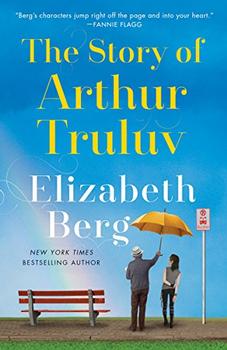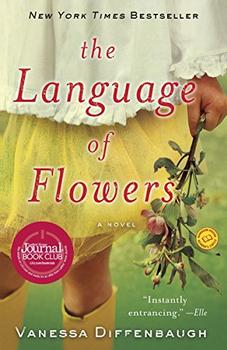Summary | Excerpt | Reading Guide | Reviews | Beyond the book | Read-Alikes | Genres & Themes | Author Bio

Kit de Waal's striking debut, My Name is Leon, has inspired this big, long, complicated question: Have you ever read a book about a character that is very unlike you, yet the author has succeeded in making him so relatable that once you've seen the world through his eyes you will never look at it the same way again? All I can say is that when I opened this book I saw the world one way and when I looked up after finishing the last page the world had a different hue.
It's racially tumultuous South London in 1980, when a nurse hands eight-year-old Leon his newborn baby brother. Jake is angelic looking, "silky white hair" and "dusty blue [eyes] with a deep black center, like a big period." Leon notes how the two boys resemble each other with their long fingers and thin eyebrows. But with Leon's nappy black hair and caramel complexion, that's where the resemblance ends.
No matter. Leon is smitten. He thinks Jake, "looks like the Baby Jesus in his manger."
As his mom, Carol, goes off for a quick smoke before feeding Jake, Leon is put in charge of introducing the infant to the world. He tells the baby, "My name is Leon and my birthday is on the fifth of July, nineteen seventy-one. Your birthday is today." He goes on, talking about everything from his toys – Action Men – to his favorite TV show – The Dukes of Hazard – and more. He can't tell Jake anything about Jake's dad because he never met the man. Leon's own dad is absent – in jail – and when he and Jake and Carol go home to their maisonette, Leon knows the two brothers will become buddies.
Carol suffers debilitating postpartum depression and Leon is left to puzzle out Jake's care on his own. It becomes a drill: don't wake Jake too early or he's grouchy, change his diaper, don't forget the white cream, make the formula fast enough that Jake doesn't start to scream. Leon watches Jake sleep and by the movement of the baby's pacifier Leon can tell whether he will wake or drift back to uninterrupted sleep. Get the picture? Twenty-five-year-old Carol is so incapacitated by her depression and drug dependency that for all intents and purposes Leon is Jack's sole caregiver.
Before long, the situation spirals out of control. Leon can't rouse Carol from her bed, there is no food in the house, no diapers for Jake, and no money. The only option is to run upstairs, and ask a neighbor for help. The ambulance comes and brings Social Services. Carol is whisked to hospital; Jake and Leon are placed with elderly foster parent Maureen. Leon is permitted to take only what he can fit inside his backpack with the promise they would return for the rest. As foster parents go Maureen's a gem. She truly attaches to both boys and lavishes them with food, birthday and Christmas gifts, and love. All is as well as can be expected with Carol in extended rehab.
But there are too many childless couples yearning for infants, and towheaded Jake with his serene disposition and bright, Anglo features is an easy placement. Before the now-nine-year-old Leon can comprehend the meaning of the word adoption; before he has a chance to explain Jake's routine, his favorite activities and his quirks to the strange couple, they take Jake away. More hollow Social Services promises, this time of letters and photos, follow. Leon starts to act out.
Maureen takes ill and Leon has to make yet another move, again with only what he can fit in his backpack. This time he's living with Maureen's sister Sylvia. Going on ten now he's allowed to ride his bike around the neighborhood. He makes friends with a young black man and elderly Irishman who tend garden plots in the nearby allotments. The men, both philosophers in their own way, frequently tangle over trivial rules violations and politics. But they indulge Leon, tutoring him in vegetable husbandry, with a little attitude and even some poetry on the side.
For all Leon has gained – in Maureen, Sylvia and the allotments men – he's lost so much more. We feel the weight of loss that rests on his young shoulders. By mid-1981, he becomes determined to take fate into his own hands. Meanwhile the world around him is spinning out of control with the dual fevers of the impending royal wedding, and violent street riots in Brixton. (See Beyond the Book) And even though I knew disaster was pending, I couldn't turn my face away from de Waal's overpowering story.
So did I identify with Leon, despite being an elderly white American woman? Well, I unconsciously started referring to the book's title as "I Am Leon." Thanks to de Waal's magnificent character development, my name might be Donna but now I am Leon too.
![]() This review was originally published in The BookBrowse Review in September 2016, and has been updated for the
August 2017 edition.
Click here to go to this issue.
This review was originally published in The BookBrowse Review in September 2016, and has been updated for the
August 2017 edition.
Click here to go to this issue.

If you liked My Name Is Leon, try these:

by Elizabeth Berg
Published 2018
An emotionally powerful novel about three people who each lose the one they love most, only to find second chances where they least expect them—from New York Times bestselling author Elizabeth Berg.

by Vanessa Diffenbaugh
Published 2012
A mesmerizing, moving, and elegantly written debut novel, The Language of Flowers beautifully weaves past and present, creating a vivid portrait of an unforgettable woman whose gift for flowers helps her change the lives of others even as she struggles to overcome her own troubled past.
Wisdom is the reward you get for a lifetime of listening when you'd rather have been talking
Click Here to find out who said this, as well as discovering other famous literary quotes!
Your guide toexceptional books
BookBrowse seeks out and recommends the best in contemporary fiction and nonfiction—books that not only engage and entertain but also deepen our understanding of ourselves and the world around us.